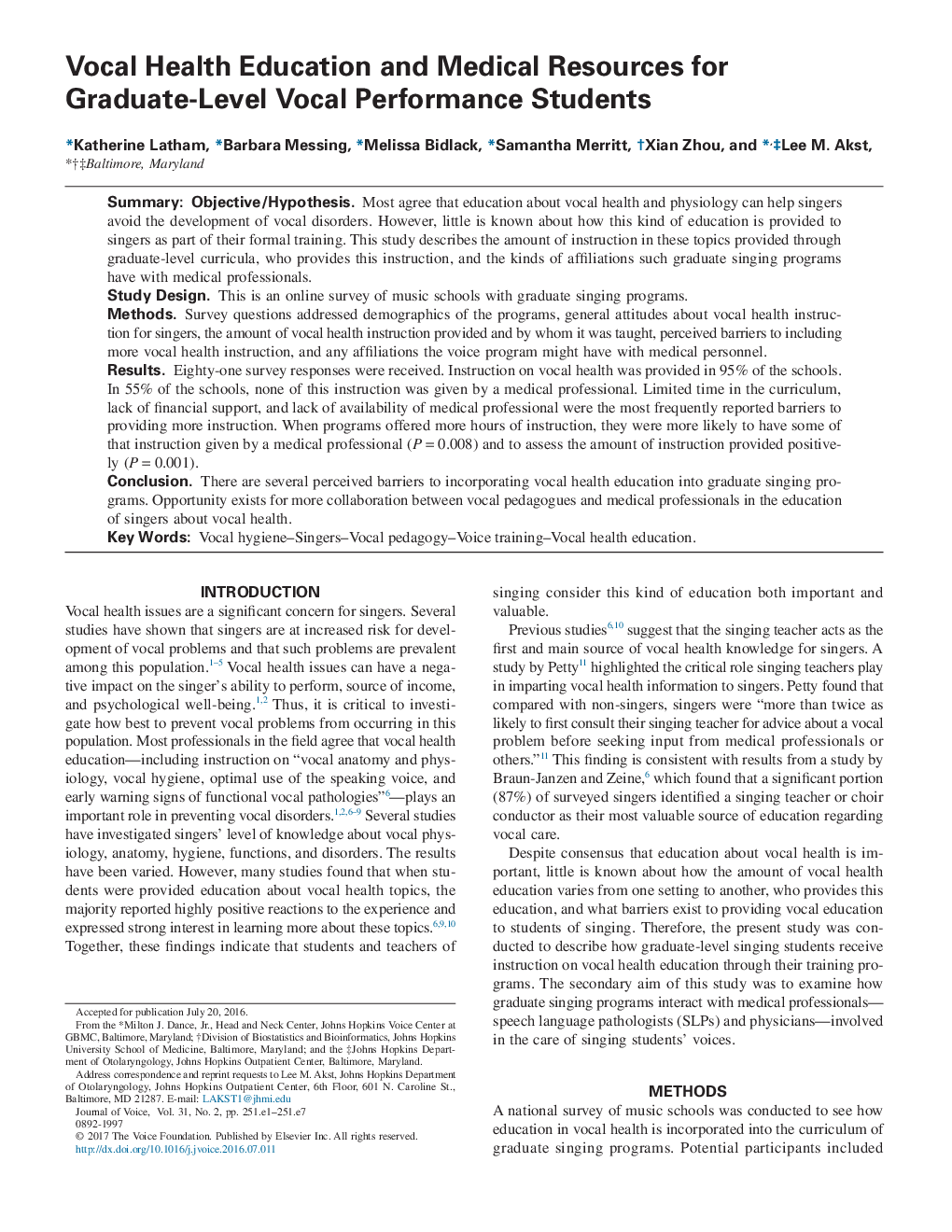| Article ID | Journal | Published Year | Pages | File Type |
|---|---|---|---|---|
| 5124425 | Journal of Voice | 2017 | 7 Pages |
SummaryObjective/HypothesisMost agree that education about vocal health and physiology can help singers avoid the development of vocal disorders. However, little is known about how this kind of education is provided to singers as part of their formal training. This study describes the amount of instruction in these topics provided through graduate-level curricula, who provides this instruction, and the kinds of affiliations such graduate singing programs have with medical professionals.Study DesignThis is an online survey of music schools with graduate singing programs.MethodsSurvey questions addressed demographics of the programs, general attitudes about vocal health instruction for singers, the amount of vocal health instruction provided and by whom it was taught, perceived barriers to including more vocal health instruction, and any affiliations the voice program might have with medical personnel.ResultsEighty-one survey responses were received. Instruction on vocal health was provided in 95% of the schools. In 55% of the schools, none of this instruction was given by a medical professional. Limited time in the curriculum, lack of financial support, and lack of availability of medical professional were the most frequently reported barriers to providing more instruction. When programs offered more hours of instruction, they were more likely to have some of that instruction given by a medical professional (Pâ=â0.008) and to assess the amount of instruction provided positively (Pâ=â0.001).ConclusionThere are several perceived barriers to incorporating vocal health education into graduate singing programs. Opportunity exists for more collaboration between vocal pedagogues and medical professionals in the education of singers about vocal health.
